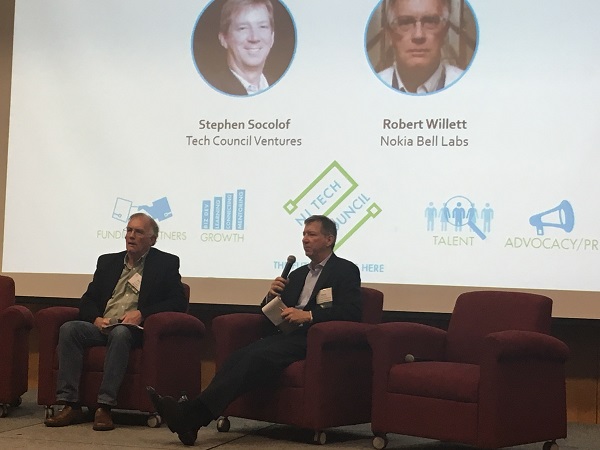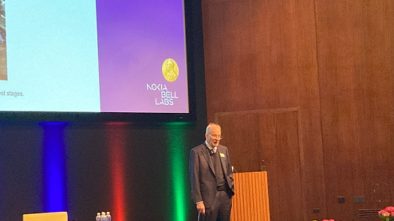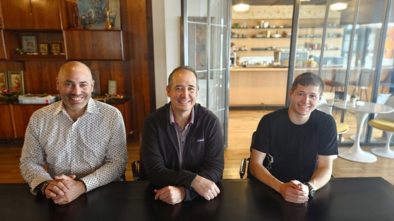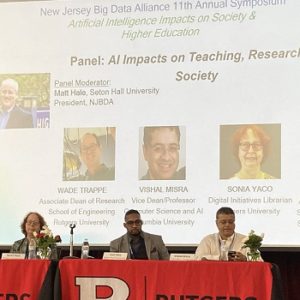At NJ Tech Council Tech Day, Talk Turns to Quantum Computing
After a full day of panels and speakers at the New Jersey Tech Council’s Tech Day in November, Stephen Socolof, managing partner at Tech Council Ventures, interviewed Robert Willett, an MIT-trained physicist who has been with Nokia Bell Labs (Murray Hill) and its predecessors for 30 years. Willet has been working on quantum computing at Bell Labs for the last five.
“Quantum computing is a technology that has received some popular hype and is really on the edge of that transition from science fiction to reality,” Socolof told the audience.
And it’s not easy to understand. Even though many members of the audience were tech savvy, Willets used the furniture on the stage to try to explain quantum computing to them, as its concepts are not easily grasped.
He said that the key thing to remember is that quantum computing involves two different sites, or states, and the ability to switch from one to the other.
While a standardized bit is fixed, in a qubit (quantum bit), “I can have occupation in either one of these things. I also have to take into account that it’s a wave. … While in a regular bit I can be either a zero or a one on a number line, with a qubit, I can be at all points on a sphere.” Think of it as going from two different points, to actually being a vector, he said.
The basis for quantum computing has been around for a long time, Willett noted, but computer scientists are now doing something with it: developing algorithms for systems. He said that the important foundational algorithms had been developed quite a long time ago, including a search algorithm and a factoring algorithm.
“The focus is on the search algorithm because, I believe, that is where the meat of the matter is. … If you have a trillion elements, it [quantum computing] is a million times faster,” than traditional computers. It will make searching data bases very, very fast.
So what’s keeping quantum computing from commercialization? While the software is developing, the hardware remains a problem. The key is having a quantum state survive long enough. If the charge is too short, you can’t do all the operations you need to do to get to the answers, said Willett. “Coherence time is a major limitation on many of the hardware systems we have.”
Another problem is entanglement. “If we have 27 fully entangled qubits, it will be more powerful than the most powerful standard computer available.” IBM has a quantum hardware system, but the qubits are not fully entangled and there are issues of coherence times, he said, so there are limitations on what it can do.
“It turns out that it’s very hard to make good qubits that work well,” Willett said.
“So the question is: When are we really going to get one of these things that is better than the standard computer? And it’s probably at least five years.”




